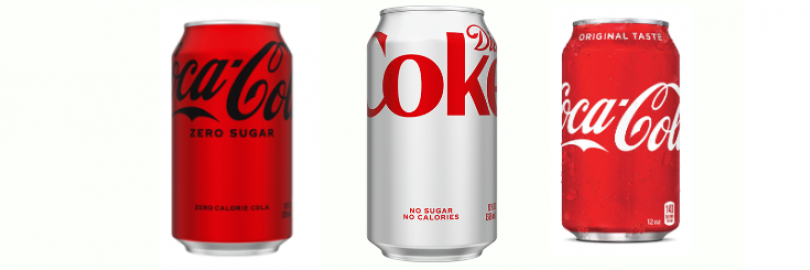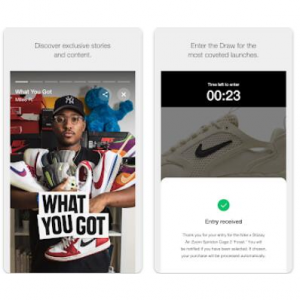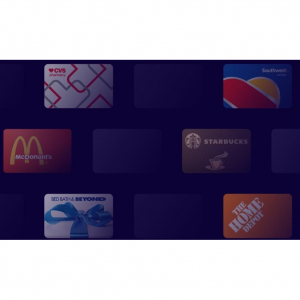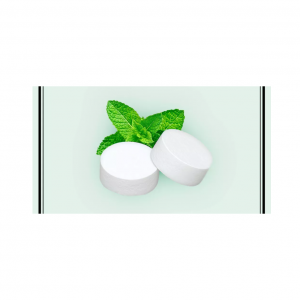
Diet Coke vs. Coca-Cola Zero Sugar vs. Regular Coca-Cola: Differences and Reviews 2025
The crunchy, refreshing flavor makes Coca-Cola a long-standing favorite that needs no introduction. Considering people's health, Coca-Cola has also launched Zero Sugar Coke and Diet Coke to help people enjoy their favorite drinks without worrying about weight gain. Clashing cans with regular coke, Diet Coke, and Coke Zero. What makes them different? Is it just the sugar content or is there more to it? How are the low-cal variants sweetened? So, is diet coke better than regular coke? Because it’s low in calories, can diet coke be used to support weight loss? Coke Zero vs. Diet Coke: What’s the difference? And which is better?
Coca-Cola is a classic example of a high-calorie, high-sugar carbonated drink with little nutritional value (vitamins and minerals). Many of us have realized this and opt for Coca-Cola Zero and Diet Coke. But which one is my favorite drink?
Quick View: Coca-Cola Zero Sugar vs. Diet Coke vs. Coca-Cola Comparison List
Coca-Cola Zero Sugar | Diet Coke | Coca‑Cola | |
|
|
| |
Calories | 0 | 0 | 140 |
Added Sugars | 0g | 0g | 39g |
Caffeine Content | 34 mg/12 fl oz | 46 mg / 12 fl oz | 34 mg/ 12 fl oz |
Sodium | 40mg | 40mg | 45mg |
Potassium | 60mg | - | - |
Ingredients | CARBONATED WATER, CARAMEL COLOR, PHOSPHORIC ACID, ASPARTAME, POTASSIUM BENZOATE (TO PROTECT TASTE), NATURAL FLAVORS, POTASSIUM CITRATE, ACESULFAME POTASSIUM, CAFFEINE. | CARBONATED WATER, CARAMEL COLOR, ASPARTAME, PHOSPHORIC ACID, POTASSIUM BENZOATE (TO PROTECT TASTE), NATURAL FLAVORS, CITRIC ACID, CAFFEINE. | CARBONATED WATER, HIGH FRUCTOSE CORN SYRUP, CARAMEL COLOR, PHOSPHORIC ACID, NATURAL FLAVORS, CAFFEINE. |
PHENYLKETONURICS: CONTAINS PHENYLALANINE ZERO SUGAR | PHENYLKETONURICS: CONTAINS PHENYLALANINE NO CALORIES, NO SUGAR | ||
Editor's review: Coca-Cola Zero Sugar vs. Diet Coke vs. Coca-Cola: Which is the Best Choice?
Although there are many different opinions, my first choice is Coca-Cola Zero Sugar.
First, it does not contain the added sugar found in high-fructose corn syrup, which fits the low-sugar, low-carb, low-calorie diet trend. Zero sugar intake helps reduce some health risks, such as weight gain, frequent acne, and increased blood pressure.
Second, Coca-Cola Zero Sugar tastes more like the original. It has a light citrus flavor but is not that sweet.
Third, its caffeine content is relatively low. Even if I drink four cans a day, I will not suffer from headaches, insomnia, rapid heartbeat, nervousness and other problems.
Fourth, its packaging is really fashionable, and drinking carbonated drinks feels like a life ritual.
For more details and differences about Coca-Cola products, please continue browsing below.
Money Saving Tips First:
In fact, you can save up to 100% on online shopping at home and abroad!
Such a high amount of cash back comes from Extrabux (What is Extrabux?), it also offers coupon codes and recent promotions, and brings together 10,000+ sites (US, China, UK, Japan, Australia , Germany, France, Italy, etc.).
Just sign up for an Extrabux account and earn exciting cash back every time you place an order via the relevant link. Sign-Up Bonus: Join for FREE & Earn $20 Welcome Bonus today! Then earn $5 Friend Referral Bonus!
Whether you are buying cheap domestic products, international luxury goods, or buying mobile phones, computers, refrigerators, washing machines, clothes, shoes, bags, mother and baby products, snacks, drinks, or booking air tickets, hotels, car rentals, or registering services and memberships , you can save money on all related purchases - save $1,000 a year!
MORE FROM
The Origin of Coca‑Cola
The first soda as we know it today was Dr Pepper, which was invented by pharmacist Charles Alderton in Waco, Texas, in 1881 and first used commercially in 1885.
Not long after that, in 1886, Coca-Cola was invented by John Stith Pemberton in Atlanta, Georgia.
In fact, Coca-Cola was not his first beverage invention.
After Pemberton was wounded on the battlefield, he took morphine to relieve the pain due to the constant pain, but he also became addicted to morphine.
So in 1885, inspired by Vin Mariani, he launched Pemberton French Coca Wine to relieve his dependence on morphine.
However, shortly after he launched the product, the county passed a prohibition bill and he needed to develop a non-alcoholic version.
On May 8, 1886, Dr. John Stith Pemberton produced the syrup for Coca‑Cola, and carried a jug of the new product down the street to Jacobs' Pharmacy, where it was sampled, pronounced "excellent" and placed on sale for five cents a glass as a soda fountain drink.
Carbonated water was teamed with the new syrup to produce a drink that was at once "Delicious and Refreshing," a theme that continues to echo today wherever Coca‑Cola is enjoyed.
Dr. Pemberton's partner and bookkeeper, Frank M. Robinson, named the drink "Coca-Cola" - a reference to its two original ingredients: coca leaves and kola nuts, and designed the unique trademark text that is still in use today.
The Coca-Cola drink was originally promoted as a tonic to treat the most common ailments such as headaches, fatigue, nausea, etc. Its ingredients are cocaine from the coca leaf and caffeine from the kola nut. Around 1903, cocaine began to be removed from Coca-Cola's formula.
What is Coca-Cola? It is a flavored carbonated soft drink that contains caffeine and sugar.
The Coca-Cola Company occasionally introduces other cola beverages. The most popular are Diet Coke and Coca-Cola Zero Sugar.
The Origin of Diet Coke
Diet Coke (also known as Coca-Cola Light, Coca-Cola Diet, or Coca-Cola Light Taste) is a sugar-free, low-calorie soft drink produced and marketed by The Coca-Cola Company and launched on July 8, 1982.
It contains artificial sweeteners instead of sugar.
Diet Coke capitalizes on the markets of people who need low-sugar options, such as diabetics and people concerned about their calorie intake. A 330 ml can of Diet Coke contains approximately 1.3 kilocalories (5 kJ), while a can of regular Coca-Cola contains 142 kilocalories (595 kJ).
The Origin of Coca-Cola Zero Sugar
According to Coca-Cola's website, Diet Coke was launched in 1982 and was the company's first sugar-free drink. After this, Coca-Cola Zero was launched in 2005, which was changed to Coca-Cola Zero Sugar in 2017.
Diet Coke is not based on the taste of the classic Coca-cola and has its own unique taste modeled after another sugar-free drink from their company called “Tab.”
Diet Coke became popular in the late 20th century as Baby Boomers began to seek healthier options.
Fast forward to the early 2000s, and Millennials, a new generation of consumers, aren't as obsessed with Diet Coke as their parents were. They wanted a soda that didn’t compromise on taste but still offered a healthier profile. Enter Coke Zero.
In 2017, "Coke Zero" underwent a major rebranding and was renamed "Coca-Cola Zero Sugar".
The aim is to make the zero sugar content more clear and show consumers that this is the healthier alternative they are looking for.
Then came 2021, and with it came another rebrand. The fresh new look also runs across the brand’s Classic and Diet drinks with Coca-Cola stating it had used the famous “Spencerian script” font in different colours to make the products easily distinguishable to consumers.
The No Sugar drink also has a whole new recipe dubbed ‘best Coke ever’. | The old No Sugar packaging. |
|
|
Diet Coke and Coca-Cola Zero Sugar vs. Regular Coca-Cola: What are the Key Differences?
>> No calories, no sugar
Both drinks, Diet Coke and Coca-Cola Zero Sugar, are sugar-free, calorie-free alternatives to regular Coca-Cola.
Unlike regular Coke, which contains added sugar, the sugar-free version of Coke uses artificial sweeteners to sweeten it, as drinking too much added sugar can cause people to consume too many calories, which can lead to weight gain.
A high-sugar diet may also lead to health problems such as obesity, fatty liver disease, high blood pressure, acne, type 2 diabetes and heart disease.
Diet Coke vs. Coca-Cola Zero Sugar: What are the Key Differences?
>> Ingredients
>> Sweetener
>> Nutritional Facts: Potassium
>> Caffeine content
>> Taste
>> Marketing
>> Audience
Diet Coke vs. Coca-Cola Zero Sugar: Ingredients
While the differences aren't dramatic, Diet Coke and Coke Zero do have slightly different ingredient lists.
For example, Diet Coke contains citric acid. Coke Zero, on the other hand, does not contain citric acid but does contain potassium citrate.
This makes Coca-Cola Zero Sugar contain a nutrient called potassium, whose main role in the body is to help maintain normal levels of fluid within cells. In other words, when you need to replenish water after sweating, drinking Coca-Cola Zero Sugar can more easily quench your thirst.
Diet Coke vs. Coca-Cola Zero Sugar: Sweetener
There are differences in the artificial sweeteners used in Diet Coke and Coke Zero Sugar.
Diet Coke is sweetened primarily with aspartame, which imparts its distinctive taste. Conversely, Coke Zero is sweetened primarily with aspartame and acesulfame potassium, aiming to mimic the flavor of regular Coca-Cola more closely.
Both sweeteners are considered safe by the U.S. Food and Drug Administration (FDA).
The difference in sweeteners contributes to their distinct flavor profiles. Aspartame tends to have a lighter, somewhat sharper sweetness, while acesulfame potassium is often described as having a more rounded sweetness, closer to that of sugar.
Diet Coke vs. Coca-Cola Zero Sugar: Nutritional Facts: Potassium
Coke Zero and Diet Coke have slightly different ingredients that may be responsible for their differing flavors. Diet Coke and Coke Zero both contain 40 mg of sodium, while Zero also proffers 60 mg of potassium.
Diet Coke vs. Coca-Cola Zero Sugar: Caffeine content:
Another small difference between the two drinks is their caffeine content.
A single 12-ounce can of Diet Coke contains 46 milligrams of caffeine, while Coca-Cola Zero Sugar contains only 34 milligrams of caffeine. For comparison, a can of regular Coca-Cola also contains 34 milligrams of caffeine.
So why does Diet Coke have more caffeine than other versions of Coke?
Caffeine is used to enhance the flavor of the drink and is said to add a touch of bitterness to balance out the other elements.
However, both of these are well under the 95 milligrams found in a typical cup of coffee, so you’re not likely to notice the difference of 12 milligrams between the beverages.
Diet Coke vs. Coca-Cola Zero Sugar: Taste
The real distinction with Coke Zero vs Diet Coke comes down to taste.
Coke Zero was introduced targeting users who found it difficult to switch from classic Coca-cola to Diet Coke, as Diet Coke has its own unique taste due to the different recipes.
Unlike Diet Coke, Coke Zero's recipe closely mimics the taste of the original Coca-Cola. It was marketed as the cooler, edgier alternative to Diet Coke, complete with sleek black packaging and high-energy advertising campaigns.
Coca-Cola Zero Sugar looks and tastes more like Coca-Cola Classic, while Diet Coke has a lighter taste because it’s made with a different blend of flavors—or has a different flavor base, as some might say.
That is, Coca-Cola has the sweetest and richest flavor, followed by Coca-Cola Zero Sugar. Diet Coke is less sweet and less rich.
Perhaps the only general consensus that most people agree with is that there's a noticeable artificial aftertaste with both Coke Zero and Diet Coke that you don't get with regular Coke. This isn't a surprise since the culprit of this aftertaste is the artificial sweetener only found in the zero-calorie drinks.
Diet Coke vs. Coca-Cola Zero Sugar: Marketing
Perhaps the most significant difference between Coke Zero and Diet Coke is marketing.
Although it didn't initially market its diet soda specifically to women, the Coca-Cola Company discovered that its flagship diet soda brand had become feminized, associated with trends in dieting that targeted women, and the brand began marketing the drink with famous women such as Whitney Houston and Taylor Swift.
In the 2000s, the company launched a new drink after noticing that Diet Coke was underselling among men ages 18 to 34.
This time, the company avoided using the word "diet," which has been associated with women's drink for decades, making it awkward for men to drink Diet Coke.
"We're positioning Coke Zero as a defender and celebrator of guy enjoyment," said Pio Schunker, head of integrated marketing communications at the Coca-Cola Company's North America Group, in 2005.
Diet Coke vs. Coca-Cola Zero Sugar: Audience
Coke Zero and Diet Coke are go-to options for soda lovers who want to cut the sugar but not the fizz.
When Diet Coke was first introduced, it was revolutionary—it became a staple for those looking to maintain weight or reduce their sugar intake.
However, Diet Coke's popularity has declined slightly as consumer preferences have shifted toward more natural ingredients, but it remains a strong brand.
Coke Zero, on the other hand, was an immediate hit with young audiences. Its promise of a true sugar-free Coca-Cola experience resonates with Millennials and even Gen Z.
Today, both sodas have established their own unique market positions. Diet Coke appeals to people who grew up with it and appreciate its unique taste. Coca-Cola Zero appeals to a younger audience who don't want to compromise on the classic Coca-Cola taste but are eager to avoid added sugar.
Frequently Asked Questions
Why you should drink as little regular soda as possible?
Sugary drinks like regular colas and sodas significantly increase your intake of added sugars, which have been linked to obesity, weight gain, heart disease, metabolic disorders and more.
Coca-Cola is the most popular soft drink not only in the U.S., but the entire world. However, it’s also a beverage option that's not recommended by doctors, dietitians and other health-focused experts. You can probably guess the major reason why. Yep, the sugar content. One can of Coke has 39 grams of sugar, which is more than what’s recommended to consume for the entire day.
Keeping people's health in mind, Coca-Cola had also introduced Zero Sugar Coke and Diet Coke which help them enjoy their favourite beverage without the fear of putting on extra weight.
Is Diet Coke sugar-free?
Diet Coke is a sugar-free beverage that doesn’t contain traditional cane sugar and other added sugars like high fructose corn syrup. This makes them a significantly low-calorie drink compared to traditional sodas.
Which is sweeter?
The difference between Diet Coke and Coke Zero is that Coca-Cola Zero Sugar is “smoother and sweeter than Diet Coke.”
While a can of regular Coke has 39 grams of sugar, the brand's alternatives, Diet Coke and Coke Zero, aim to be healthier.
Is Coke Zero caffeine-free?
A 12-ounce drink of coke zero contains about 34 mg of caffeine. That is about a third of the caffeine in a cup of coffee.
Is Diet Coke caffeine-free?
A 12-ounce drink of Diet Coke contains about 48 mg of caffeine. While this amount is higher than coke zero, it is still less than half the caffeine in a cup of coffee.
Which soda is the healthiest?
Aside from the artificial sweetener, there are no significant nutritional differences between Diet Coke and Coke Zero Sugar.
Health experts do not recommend drinking soda on regular basis, since soft drinks have no nutritional benefits.
However, if you are trying to lose weight or have diabetes, these sugar-free versions are better than drinking original Coke.
Is Diet Coke Bad for You?
Drinking two glasses of diet coke isn’t likely to hurt you. Since diet coke is sugar-free, we could assume that it could aid in weight loss but studies are mixed. The effects of diet coke on weight loss are conflicting.
Studies show that artificial sweeteners like aspartame and cyclamates are associated with an increased risk of obesity and metabolic conditions and may increase appetite, however, this is only likely to result from very large intakes of such artificial sweeteners, close to 6 cans of diet coke a day.
Is drinking Coke Zero every day ok?
While they may be healthier than traditional colas, they considerably raise your blood glucose and insulin levels. Therefore, limiting consumption to a maximum of two cans in a day is best.
When deciding between coke zero vs diet coke for your health, it's important to note a few things. Both drinks can be part of a well-balanced diet, but moderation is key.
Although artificially sweetened drinks can help with one's weight management journey by offering a sugar-free option, but keep in mind that excessive consumption can affect cravings for sweet foods.
Coke Zero vs Diet Coke: Which tastes better?
Coke Zero aims to mimic the iconic Coca-Cola flavor, while Diet Coke has its own unique taste. Some people find Coke Zero closer to regular Coke, with a slightly sweeter profile, while Diet Coke has a lighter and crisper flavor. It all ends up to one's personal preference and taste.
How many calories in Diet Coke vs. Coke Zero?
Both Diet Coke and Coke Zero Sugar contain zero calories and zero sugars.
How much sugar is in Diet Coke vs. Coke Zero?
Neither Diet Coke nor Coke Zero Sugar contain sugar or carbohydrates. Instead, they contain artificial sweeteners (aspartame, acesulfame potassium).
| Top 10 Most Carbonated Soda in the World 2025 |
| Top 10 Most Sugary Sodas in the World, Ranked 2025 |
| The 10 Top Lemon-Lime Flavored Drinks, From Soda to Sparkling Water |
| Top 10 Most Caffeinated Sodas in the World 2025 |
| Ginger Ales Shoutout: Canada Dry vs. Schweppes vs. Seagram's vs. Vernors? |
| Canada Dry Ginger Ale Zero Sugar vs. Regular: Differences and Reviews 2023 |
| Diet Mountain Dew vs. Zero Sugar vs. Regular: Differences and Reviews 2025 |
| Diet Dr Pepper vs. Dr Pepper Zero vs. Regular vs. Cream Soda: Differences and Reviews 2025 |
| Pepsi Zero vs. Diet Pepsi vs. Pepsi Max vs. Pepsi One: Differences and Reviews 2025 |
| Everyday Dose vs. RYZE vs. MUD WTR: Which Brand is Best for Mushroom Coffee? |
| Truvani vs. Ka'Chava vs. RYZE vs. Isagenix: Which Brand is Best for Superfood Meal? |
| Ninja CREAMi vs. Deluxe vs. Breeze: Differences and Reviews 2025 |
| Top 10 Strongest Mints in the World 2025 |
| 10 Healthy Nutella Alternatives That Are Low-Calorie and Vegan-Friendly |
| Top 10 Longest Lasting Chewing Gum in the World 2025 |
| 5 Better or Cheaper Alternatives to Liquid I.V. (No Sugar or Less Sugar) |
| 13 Mintiest Toothpastes in the World, Ranked 2025 |
| BioSteel vs. Gatorade vs. Liquid I.V vs. LMNT: Who is Best for Electrolyte Drink? |
| Top 10 Mintiest Gum in the World 2025 |
| Electrolit vs. Gatorade vs. Powerade vs. Pedialyte: Who Wins the Sports Drink Brand Showdown? |
| Chips Ahoy vs. Oreo vs. Famous Amos vs. Chips More: Who Makes the NO. 1 Cookies Brand? |
| Liquid I.V. vs. Gatorade vs. Pedialyte: Which Makes the Best Electrolyte Drink? |
| OLIPOP vs. Poppi vs. Culture Pop vs. Zevia: Which Brand is Best for Prebiotic Soda? |
| 10 Most Popular Soda Brands in the World, Ranked 2025 |

Extrabux is an international cashback shopping site, offering up to 30% cashback from 10,000+ Stores!
Squarespace, SkinStore, MATCHESFASHION, The Wall Street Journal, NordVPN, Visible, Armani Exchange, Sam's Club, PUMA, AliExpress, Card Cash, NET-A-PORTER, Udacity, Udemy, Selfridges, LOOKFANTASTIC, Vimeo, Coach Outlet, lululemon, PrettyLittleThing, Booking.com, Ripley's Aquarium, iHerb, Groupon, etc.
Join to get $20 welcome bonus now! (How does Welcome Bonus work?)
Recommendation
-

Is Turkish Airlines Good for International Flights?
-

10 Best & Stylish Winter Coats for Women on NET-A-PORTER in 2025
-

Top & Best 12 Sneaker Apps/Websites for Raffles, Releases & Restocks in 2025
-

7 Best Gift Card Exchange Sites - Buy, Sell and Trade Discount Gift Card Safely and Instanly!
-

Top 9 Professional Skincare Brands for Licensed Estheticians 2025
















